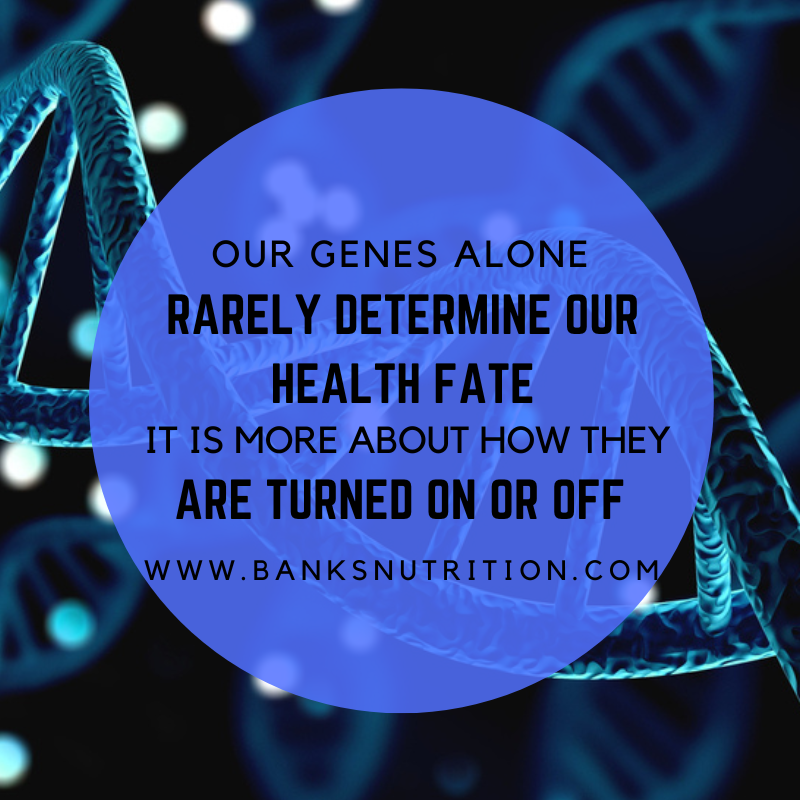
Our Genes Alone Rarely Determine Our Health Fate
October 11, 2022
It Is More About How They Are Turned On Or Off
I participated in a conference this past week on the role of epigenetics in health and disease and how our lifestyle affects that. Epigenetics simply means “above the gene”. Our 30,000 genes harbor many mutations that can increase our disease risks. These risks, however, vary significantly between different individuals with identical mutations. This begs the question, why?
Genes have several layers of regulators which can help limit when the gene can be activated. An important one is methylation where methyl groups sit in regulatory sites preventing the gene from activating spontaneously. These methyl groups come from diet based nutrients including folate, vitamin B12, methionine, zinc, betaine, and choline. There are also environmental factors that limit methylation and encourage gene mutations to activate and cause trouble.

The first section of the program were presentations of 32 of the top epigenetic researchers starting with Randi Jirtle, PhD. He has done some pioneering research on epigenetics with the agouti mouse. This is a mouse with the Agouti gene which when active causes the mouse to have a yellow coat, obesity and disease such as diabetes. The siblings in whom the gene was inactive have brown coats and are lean and healthy. Dr. Jirtle’s research looked at female mice with the gene and manipulated their diet during gestation.
In a typical litter of these mothers some of the offspring will have yellow coats, be obese and develop diabetes. He used different dietary exposures to examine how this ratio of healthy to diseased offspring is affected. The results were striking. If a small amount of the additive chemical used in many plastics, bisphenol A or BPA the Agouti gene becomes active and more of the litter has the yellow coat, obese, diabetic pattern. It seems that BPA inhibits the ability of nutrients to methylate the gene and keep it quiet.

Their next step was to treat the same females with a supplement of the methylating nutrients. The effect was the opposite with the Agouti gene staying suppressed and the majority of the litter having brown coats and being lean and disease free.
We all have many potentially problematic genes if they become active during our lives. Hopefully we got off to a good start with careful attention by our parents to nutrition and toxicity. Beyond that, our attention to those areas both avoiding toxic exposures such as BPA and eating and supplementing supplying an adequate supply of nutrients also plays a role in disease development.
Our genes are important but what we do to influence epigenetic control of our genes gives us the power to manage our fate.
I will be subsequently sharing the gems from the other presenters at this conference. Day 2 centered on the role of our healthy or unhealthy microbiome on epigenetic patterns. They were equally fascinating and helpful.